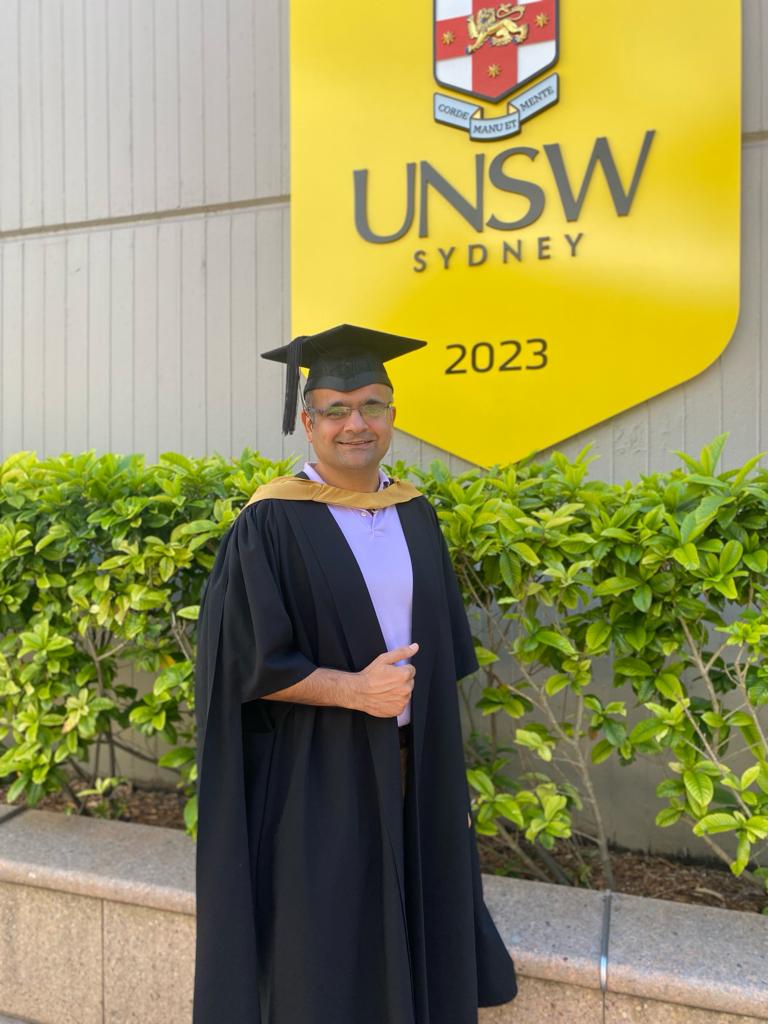About
Sid Anand
I bring a unique blend of experience, empathy, and evidence-based practice to my role as a Behaviour Support Practitioner. With over 19 years of leadership experience and a strong academic foundation in psychology, I’ve transitioned into this field with a deep commitment to helping individuals live more empowered and meaningful lives. I bring a person-centred, neuro-affirming approach to behaviour support. I work collaboratively with families, support workers, and allied professionals to co-create practical, strengths-based Behaviour Support Plans. My focus is always on improving quality of life, honouring lived experience, and supporting sustainable, positive change.
Background
![]()
![]()
![]()
![]()
![]()
![]()
From a young age, I found myself deeply curious about the factors that shape our thoughts, emotions, and actions. Over the years, I have had the privilege of working with a diverse range of clients, each with their unique stories, dreams, and aspirations.
Education
![]() Psychology
Psychology
 Life Coaching Certificate
Life Coaching Certificate
 OKR Coach
OKR Coach
![]() MBA
MBA
![]() Engineering
Engineering
Experience
Creatively solving customer problems by inspiring healthy & effective mindsets!










Good to know.
How long does the coaching process take?
The duration of the life coaching process can vary depending on several factors, including the individual's goals, the complexity of their challenges, and the frequency of coaching sessions. Typically, a life coaching engagement can span anywhere from a few weeks to several months. It is common for clients to commit to a minimum of three to six months of coaching to allow sufficient time for meaningful progress and sustainable change.
What if I wanted to end my coaching engagement?
If you feel the need to end your life coaching engagement, it is essential to prioritize your well-being and make choices that align with your needs and goals. As a client, you have the autonomy to decide when and how to conclude the coaching relationship.
Here are a few steps you can take to end your life coaching engagement:
-
Reflect on your reasons: Take some time to reflect on why you want to end the coaching engagement. It could be due to achieving your goals, a change in priorities, or feeling that coaching is no longer beneficial for you. Understanding your reasons will help you communicate effectively with your coach.
-
Communicate with your coach: Reach out to your coach and have an open and honest conversation about your decision to end the coaching engagement. Share your reasons and feelings respectfully, allowing for a clear understanding between both parties. Professional coaches are trained to handle such situations with empathy and understanding.
-
Discuss the process: Discuss with your coach how you would like to conclude the coaching engagement. This may involve discussing any pending sessions or assessments, as well as any financial or logistical matters related to the termination of the coaching relationship.
-
Provide feedback: If you feel comfortable doing so, provide feedback to your coach about your coaching experience. This feedback can be helpful for the coach's professional growth and development, and it may also contribute to improving their coaching practice.
Can I change through coaching?
Yes, life coaching is designed to facilitate personal growth and positive change. Through the coaching process, individuals have the opportunity to gain self-awareness, identify and overcome limiting beliefs, set and achieve meaningful goals, and develop strategies for personal and professional development.
Life coaching can help you make positive changes in various areas of your life, such as relationships, career, health, and overall well-being. A skilled and trained life coach can provide guidance, support, and accountability as you navigate challenges, explore new possibilities, and take steps towards your desired outcomes.
How often do we meet?
The frequency of meetings with your life coach can vary depending on your preferences, needs, and the coaching package or agreement you have with your coach. Typically, life coaching sessions are scheduled on a weekly or bi-weekly basis, but this can be adjusted to accommodate your specific circumstances and goals.
Remember, life coaching is a dynamic and evolving process, and adjustments to the meeting frequency can be made based on your changing needs and goals. The key is to establish a regular and consistent rhythm of meetings that allows for continuous growth, learning, and support.
Still, have questions?
Can’t find the answer you’re looking for? Give us a call or chat to our friendly team.